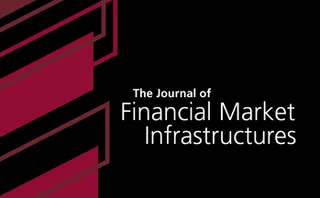
Fernando Cerezetti
EACH Risk Committee
Fernando Cerezetti is a Risk Director at ICE Clear Europe, part of Intercontinental Exchange (NYSE: ICE). He currently co-chairs the Risk Committee of the European Association of CCP Clearing Houses (EACH). He holds a PhD in Statistics, with focus on Bayesian Statistics, and is a PhD candidate in Economics at King’s College London. Prior to joining ICE, he worked as a Risk Advisor for the Risk, Research and CCP Policy division of the Bank of England. His research interests include risk management, financial market infrastructures, financial stability, and statistical hypothesis testing.
Follow Fernando
Articles by Fernando Cerezetti
Correlation breakdowns, spread positions and central counterparty margin models
The authors investigate correlation behavior during adverse market conditions and the potential impact on CCP margins, finding that such breakdowns appear to be more common than expected.
Climate risk and central counterparty risk management
In this paper, the European Association of CCP Clearing Houses discusses several aspects of climate risk, including how climate risk is currently integrated into central counterparty stress testing, the metrics within climate risk and how central…
Supervisory stress testing for central counterparties: a macroprudential, two-tier approach
This paper examines the role of supervisory stress testing of central counterparties (CCPs). A key message is that the design of supervisory stress tests (SSTs) should be tailored to CCPs’ roles, risk profiles and financial structures.
Central counterparty anti-procyclicality tools: a closer assessment
This paper investigates whether the substantial focus placed on the procyclicality of initial margin reflects both the original concerns at the time of the 2007-8 financial crisis and the intrinsic 'modus operandi' of CCPs.
Who pays? Who gains? Central counterparty resource provision in the post-Pittsburgh world
In this paper, the authors develop a conceptual framework to examine whether the regulatory changes since the Pittsburgh Summit could be a catalyst for reconsidering the structure of clearing houses.
Estimating “hedge and auction” liquidation costs in central counterparties: a closeout risk approach
This paper shows how the closeout risk framework can be extended to realistically represent and simulate the potential outcomes of “hedge and auction” default management policies currently implemented by several major central counterparties.
